It’s a Tuesday evening at the Mondrian Soho. I scan the bar, affecting nonchalance. In reality, I’m nervous and excited at the prospect of meeting Gugu Mbatha-Raw, the star of Amma Asante’s Belle, a film inspired by the real-life 18th century biracial aristocrat Dido Elizabeth Belle.
Out of the corner of my eye I see the hostess speaking with a slender young woman with delicate features. Gugu, chic yet casual, breaks into a smile as she comes over; warmth, sincerity and poise in her movements and words.
The dress that took a red-eye
I pick one of the bar’s “market fresh” cocktails—an exotic martini infused with rosemary. Gugu thinks for a moment and asks for an espresso martini. “There we go, then I don’t feel too boring!” she laughs. “I was just going to get an espresso, and then was like, ‘Oh my God, she’s getting a cocktail!’”
Gugu’s schedule is hectic. Whizzing from one Q&A to the next, looking exquisite at high-brow social functions and carving out a bit of time to enjoy the New York theater scene.
I ask about the dress she wore to the Met Ball the night before. Designed by Alber Elbaz, the creative director of Lanvin, it was her first made-to-measure item.
“It is such an international dress because the measurements were taken in LA, the dress was made in Paris, and I had the first fitting in New York. The dress took a red eye to get from Paris to New York on Sunday.”
Instinct versus conditioning
I turn our attention to the film and inadvertently blurt out a confession. Something about Gugu makes me feel I can be open.
Jia Jia: I have to say I was surprised by my own reactions while watching Belle. I’d get confused every time Dido told a servant what to do. I guess I don’t expect to see a non-white person ordering people about in period dramas.
Gugu: Yeah you don’t see them in that context unless they’re a slave, a servant or being brutalized. They’ve not been depicted in movies as articulate, somewhat privileged and educated, if not equal, people.
Jia Jia: And it made me realize that these expectations are ingrained in me, which is troubling. Subconsciously, I don’t associate period refinement and sophistication with people of color.
Gugu: Well this is what the story is about—the idea of instinct versus conditioning. For Amma Asante the director, that’s always bubbling beneath the surface. Who are we really, and what has society endowed us with? What are we groomed to expect and what should people be like? Does that really matter?
Hopefully, the message of the film is, be who you are, learn to be comfortable in your own skin. And if you need to break the social rules, break them because sometimes they’re holding you back.
Gender, identity, and class
Jia Jia: I found that I could relate to Dido, even though she lived in a different time. She’s an independent woman with her own inheritance.
Gugu: Yes. She has her financial security, which, again, you never see in films. Ironically, her white cousin, who is more like the poster girl for the period, needs to marry for money whereas Dido can actually marry for love. And that’s so refreshing to me.

Jia Jia: What I found interesting was that despite this independence, she struggles to fit in—partially because of her skin color, but also because marrying for love (versus status) was socially unconventional.
Gugu: Well that’s the thing because though race is the obvious issue of the film we also have the huge question of gender—the marriage market of that time.
This is a very female centric film: female lead, female director, female writer, female composer, the head of Fox Searchlight is a woman.
Women’s role in society is a huge thing, as well as identity in general irrespective of race. Class for example—since this is British. If you’re the daughter of a slave but everyone treats you like a lady, then how are you going to feel inside? Do you feel like a slave or a lady?
Treating every person as an individual
Jia Jia: Growing up around Oxford, did you ever struggle with your identity?
Gugu: Oxford itself was pretty multicultural because the university attracts academics and students from all over the world. My hometown of Whitney was much less so; I think in a school of a thousand, I was probably one of three or four non-white students. But I have to say, I never felt discriminated against; I was very much treated as an individual. From what I know of racism, there has to be more of a sense of us versus them and it’s more of a community issue.
Jia Jia: As a Chinese immigrant growing up in London, I felt there were so few of us that people tended to treat us on a case-by-case basis versus applying blanket racial stereotypes.
Gugu: It’s funny because now a lot of people are asking me, “So how was your childhood? Were you treated like Dido?” And I sort of have to say, no. I was really lucky to have had confidence instilled in me by my parents. And I suppose I’m realizing that’s not always the case. It depends on when and where you grew up; for example, America has an African American cultural legacy tied to slavery that’s vey different from a British story like mine where my dad’s South African and I’m first generation.
I think it’s important to respect that everyone has a unique journey; to label every person with a similar cultural legacy is a mistake.
Amma Asante’s vision
Jia Jia: What was it like to work with Amma Asante?
Gugu: She’s amazing—such a dynamic woman and a very articulate, driven and passionate lady. Amma was very keen that even though we’re exploring potentially weighty issues, we should never lose sight of the fact that this is a love story and a human story so we’re not beating people over the head with the politics. Hopefully we’re contacting people on an emotional level because I feel that once your emotions are engaged, you can take in big ideas even if it’s subliminal.
Jia Jia: It’s very tempting to restrict films within certain categories—this film is political, that film is romantic and so on. I love the fact that Belle combines period romance with political context.
Gugu: That’s the thing—it really is multi-faceted. When different people see the film, they bring their own experience to it. In rehearsals, Amma was constantly talking about Dido’s evolution, from an obedient girl who’s too afraid to confront the social norms to this strong woman who’s able to challenge her father figure and command his respect. I think it’s really a story about learning to be comfortable in your own skin and the courage that it takes.
Favorite scenes
Jia Jia: What did you love doing during the film and what was difficult?
Gugu: For the romance I love the Vauxhall Garden scene where she sneaks off to meet John Davinier and they end up in an embrace, just because it’s one of the most romantic scenes in the film. And this forbidden love you know, I just thought the writing of that was exceptional.
For Dido’s real kind of stand-up-for-herself, I love the scene where she just tells Lady Ashford to stick it. That’s very Shakespearean, that scene, where she finds her tongue. She says, “I have a tongue, madam.” And Miranda Richardson is an actress to be reckoned with, she’s a fierce opponent, so that was really fun to work with her on that scene.
A challenging but important scene for me was that first scene that Dido has in the mirror where she’s pulling at her face. Even though we’re exploring this very genteel romantic world, that’s the first time we get a window into Dido’s soul. We actually get to understand the frustration and ugliness that’s just beneath the surface. Like the Zong case, this ugly issue which is being swept under the carpet. With a scene like that, you go, “Oh right, this isn’t going to be just another Jane Austen drama; it’s exploring a layer beyond that.”
Colin Firth and New York
Jia Jia: Are you a fan of the Austen era?
Gugu: Oh absolutely. I totally grew up watching Pride and Prejudice with Colin Firth! I met Colin Firth at the Met Ball last night. It was so crazy! I also loved Ang Lee and Emma Thompson’s Sense and Sensibility. Amma actually recommended that I re-watch it for the sisterhood because another thing we wanted to explore in the film is the sense of sisterhood between Dido and her cousin Elizabeth and test what that relationship could withstand.
Jia Jia: I really enjoyed watching that relationship evolve. That said, I’m feeling the cocktail now and it’s going to affect the train of my questions! How do you find New York?
Gugu: I love New York! It’s like home to me. I get here and just love the energy. Though I find it very intense, I have to say. If I lived here full time I’d need to take regular breaks because I always tire myself out. I get over-stimulated I think. And I have to make sure I get time to take my yoga classes and walk in the park.
Ballet, Crouching Tiger Hidden Dragon, and Blackbird
Jia Jia: You used to dance—ballet, tap etc. Are you still into that?
Gugu: Yeah I love it. I’m one of those annoying people who’s naturally flexible and needs to stretch.
Jia Jia: Oh you are annoying!
Gugu: Actually, in the last movie that I did, Blackbird, which is coming out in November, I got to do a lot of dance training because I play a pop star. So I was working with this very dynamic choreographer, Laurieann Gibson (Lady Gaga’s former creative director), and she really put me through my paces and with much more contemporary commercial music.
Jia Jia: I love dance. I did jazz and then oddly enough ended up doing a lot more hiphop. I do wushu which is like Crouching Tiger Hidden Dragon.
Gugu: I looooove Crouching Tiger Hidden Dragon! When I was at drama school, we did a fight scene from that with rapier and dagger—the scene between the two women.
Jia Jia: Yeah, Chinese dance and martial arts are pretty connected. I also take beginner’s ballet and find that it’s great for mental discipline.
Gugu: You know, I really credit that with giving me a sense of discipline which I still apply to acting. You have to be so disciplined as a dancer—in time keeping, getting to know your body, developing stamina—which I think is useful whatever you do.
Saying something through film
Jia Jia: So what kind of roles do you think you’d like to do in future?
Gugu: I’d love to do a variety of movies. Belle is very different from Blackbird. I’d also love to do an action movie. But I’m concerned as well with the message of a film.
I like to think that hopefully the role of the arts is to inspire people and I think it’s somewhat of a responsibility— if you’re putting something out there, what are you saying with it?
I aspire to be in things that have something worthwhile to say. It doesn’t have to be heavy, it can be uplifting and hopeful too.
Gugu and Jia Jia
Jia Jia: And finally, do people keep asking you how to pronounce your name?
Gugu: Yeah. I’m constantly re-pronouncing my name for people but that’s ok, I’m used to it.
Jia Jia: Some people switch to an easier name. I just insist that people pronounce mine. It’s the least they can do.
Gugu: Yeah, that’s my view. The world is so broad and wide with many different cultures and names. It’s all relative—it’s what you’re used to. Yes “Gugu” is an unusual name here but in South Africa it’s not unusual and it’s short for “Gugulethu” which means “our pride” so how could I change that?
You got to be proud of your name, you got to own it, so I’ve learnt to do that.
—
By Jia Jia
Title photograph from W Magazine
Stills from Fox Searchlight
Tags: film gender identity race





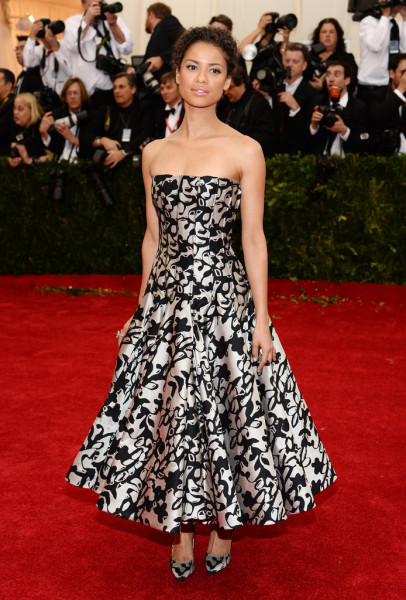
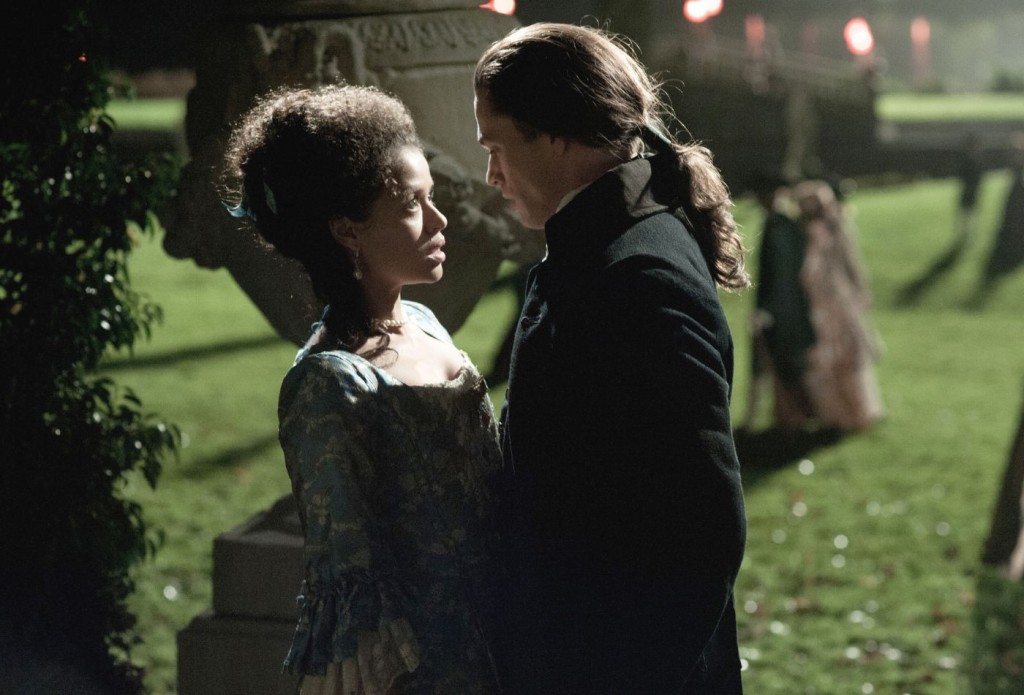
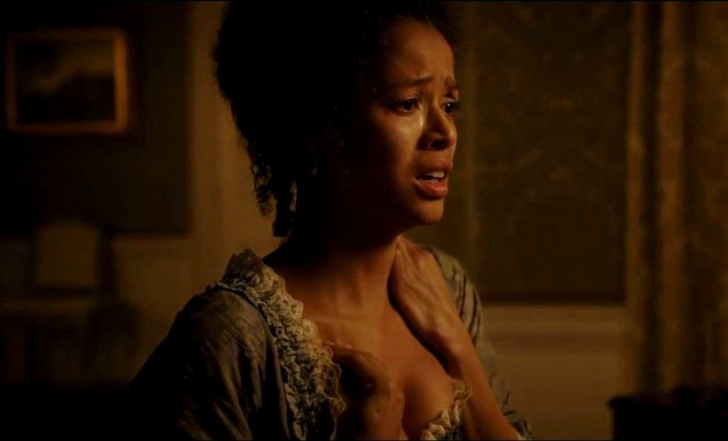
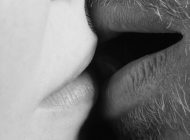








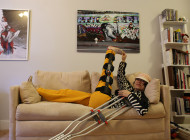









0 Comment